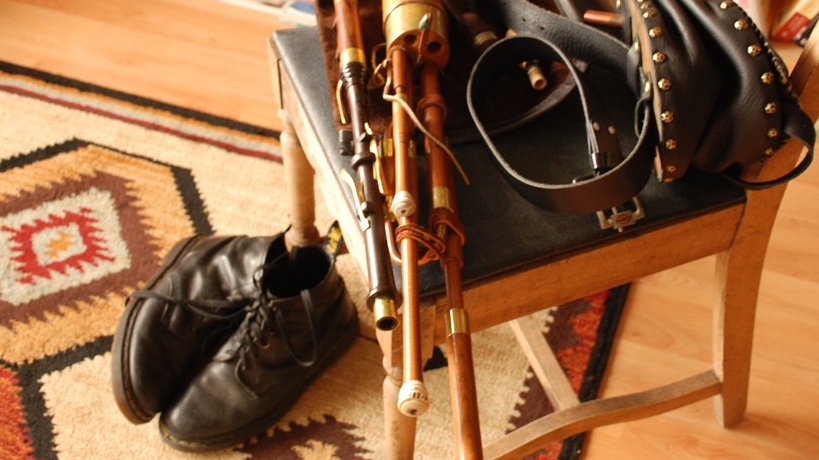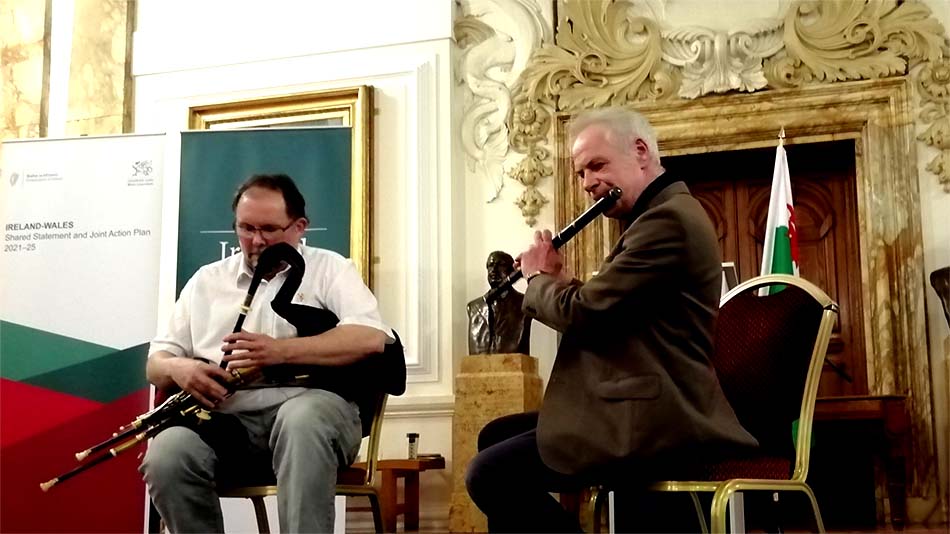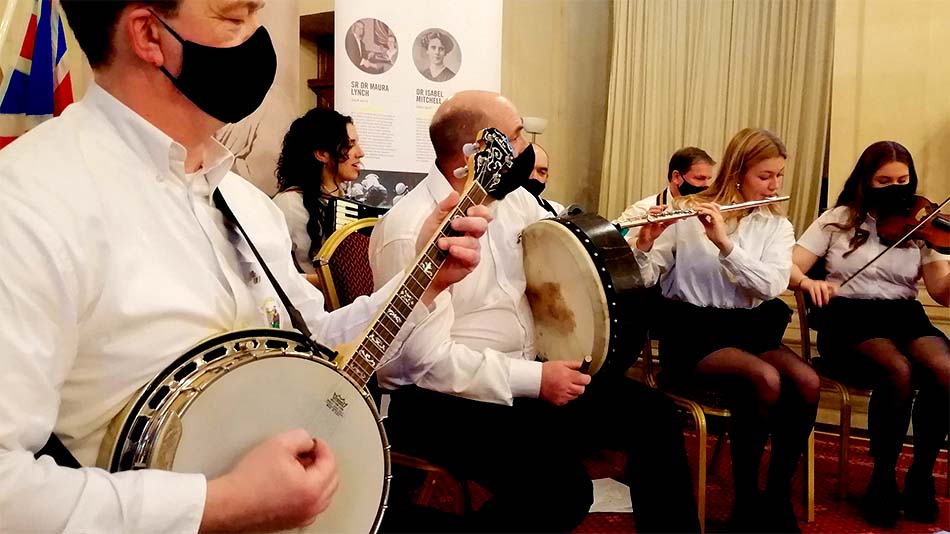South Wales’ Piping Community brings culture, community and tradition together through music

As Rick Lines and Ceri Rhys Matthews took to the floor to play their set of tunes on St. Patrick’s Day, a mixture of Welsh and Irish music, this perfectly signified for many the coming together of the two Celtic nations.
Yet, little did many in the room know that the man playing the Irish pipes, or the Uilleann pipes (pronounced il-en) as they’re known, was actually a Canadian living in the south Wales valleys.
“I actually ended up in South Wales because of the pipes,” says Rick. “I’d been coming down pretty regularly to events just because it was a nice weekend away out of London. And I got to know a lot of musicians around here and just enjoyed the area.”
Rick started to learn the Uilleann pipes in Canada in the days before the internet made access to information a lot easier. Irish immigration in the 50s created the opportunity. “Toronto had and still does have a very vibrant piping scene,” says Rick. “It was kind of unusual in North America at the time.”
The instrument itself is unusual but for Rick, it was quite a natural choice. “I’ve always liked bagpipes,” says Rick and as for the Uilleann pipes, “It’s a beautifully expressive instrument. It’s just a sound that draws people in”.

“Uilleann” is the old Irish word for “elbow” and that’s exactly how you play it – with the elbow working the bellows to create a supply of air.
“They’re certainly the most sophisticated and complex bagpipe,” says Rick. “They are an expensive instrument. Typically people buy in stages because they have three different sections.”
There are different sets, from practice sets to those owned by Rick, which are more complex and more expensive. “I play very old sets of pipes. All of my pipes are made in the 1800s.”
Like Rick, there are other piping enthusiasts in Wales. He is the co-chair of the South Wales Pipers, which is situated in the Rhondda valley, 20 miles from Cardiff which has six to eight regular members.
“[We’re] trying to encourage people to play the instrument because it’s pretty unusual,” says Rick. “In more normal times, we would teach classes. We’d organise a couple of big events”.
The pipers had also been planning to go out and do pilot demos to some of South Wales’ Irish communities in association with the Irish consulate in Cardiff who had hoped that it would ignite interest in art and culture.
“They’re just very interested in promoting not just us, but just generally, particularly intersections between Welsh and Irish culture and music.
The connection between Welsh and Irish music is apparent in the partnership between Ceri and Rick, their performance at City Hall wasn’t a one-off as they are actually working on a long-term project together.
“Our whole project is about exploring the links between music,” says Rick. “During the 19th century [there was] so much connection between Cork and Swansea through copper mining.
We’re very interested in digging up the kind of tunes that they have in common”.
For Rick the social side of the piping community is also important. “We’ve got quite a good reputation for putting on good events here,” says Rick. The Tionol in particular is important, it is in a most basic sense a “piping weekend” but allows pipers from other areas such as Cornwall, London and Ireland to join together at one event. Fitting, as Tionol means “gathering”.

Even in lockdown, the pipers managed to play together. “The first tour of Irish piping in South Wales, which took place in 1910, was this young woman who is actually a well-known piper,” says Rick. “A woman called May McCarthy.
We wanted to do something in lockdown and it was the 110th anniversary and it gave us a chance to focus on just women piping”.
That included female pipers as young as fourteen, to Rick’s former teacher from Canada, who is now in her sixties.
Being a part of a piping community is important for the upkeep of the instrument. Particularly if you have a set of 19th century pipes you like to share, ” I like to let people have the opportunity to play a historic set of pipes. That’s part of it for me. Most people wouldn’t have the chance to play [these] pipes”.
Well, not always. “If I was playing in a pub or something and someone walked up to me, I would say no”.
